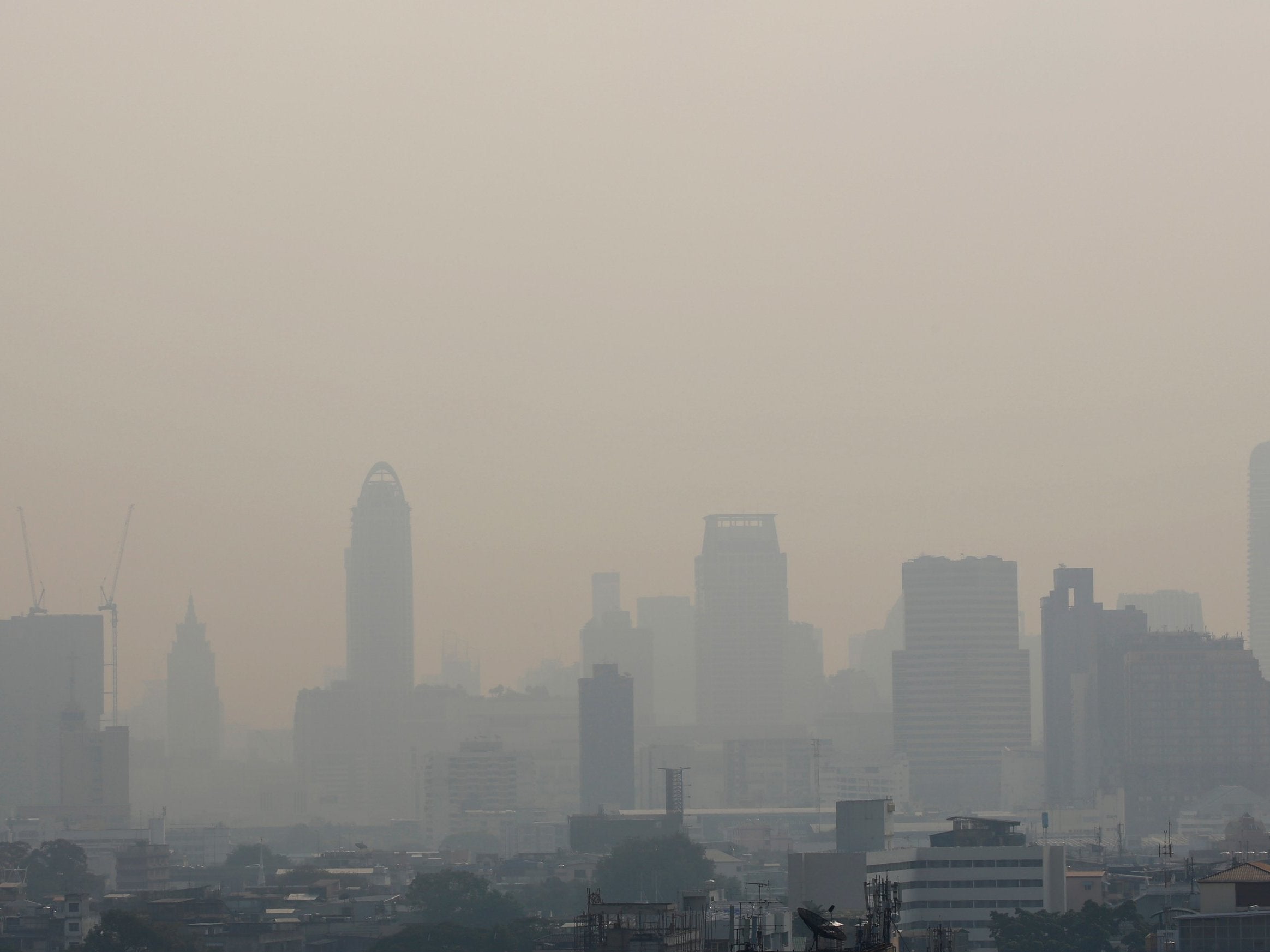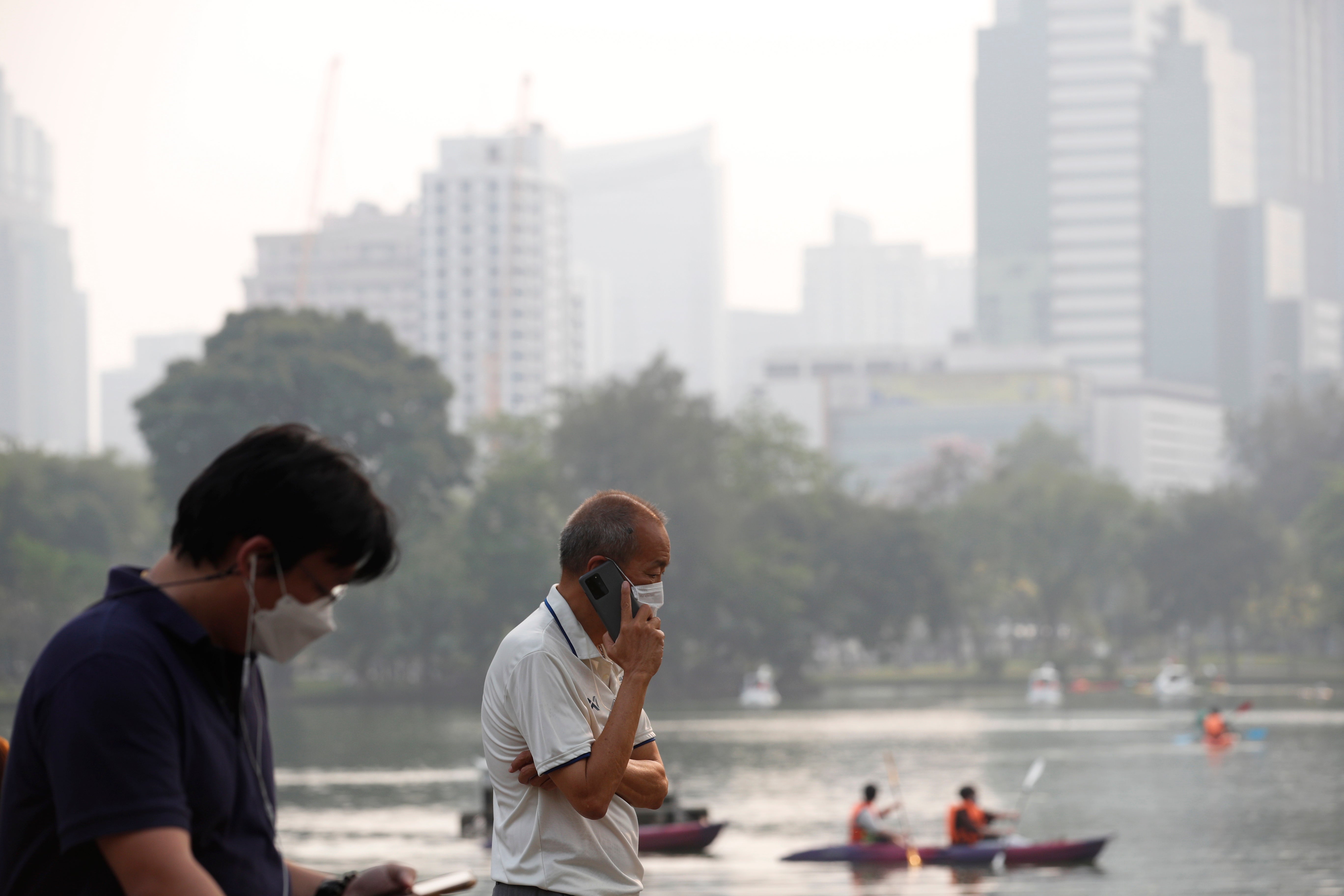Nearly 200,000 people hospitalised as Thailand chokes on air pollution
Around 1.3 million people have fallen ill till date due to the increasing levels of air pollution, authorities say

Nearly 200,000 people have been hospitalised in Thailand this week due to hazardous air pollution, as the country is choking on a thick haze that has engulfed the capital city, Bangkok.
The severe pollution has been caused by a dangerous mix of industrial emissions, agricultural burning, and vehicle fumes.
The rising levels of air pollution in Thailand have put immense pressure on the country’s healthcare services. More than 1.3 million people have fallen sick since the start of the year as a result of air pollution, with nearly 200,000 admitted to hospital this week alone, AFP reported, quoting the public health ministry.
Bangkok, the capital city, is the worst affected with air quality continuing to worsen due to a combination of vehicular pollution, industrial emissions, and smoke from agricultural burning.
On Saturday, the popular tourist destination was ranked the third-most polluted city in the world by monitoring firm IQAir.
Kriangkrai Namthaisong, a doctor with the ministry, has advised pregnant women and children to stay indoors, as almost 50 districts in Bangkok have reported unsafe levels of PM2.5 particles.
PM2.5 particles, which are considered the most dangerous due to their ability to enter the bloodstream and damage organs, have been recorded at unsafe levels in 50 districts of Bangkok, with levels far exceeding the guidelines set by the World Health Organisation.
The northern city of Chiang Mai, an agricultural region, is also badly affected due to incidents of stubble burning in the area.
To counter the situation, the Bangkok governor Chadchart Sittipunt’s spokesperson Aekvarunyoo Amrapala announced that another work from home order will be issued if the situation deteriorates and advised anyone going outside to wear a high-quality N95 anti-pollution mask.
Authorities have taken some measures to counteract the situation, with nurseries in Bangkok setting up “no dust rooms” fitted with air purifiers to protect young children. In addition, checkpoints have been established to monitor vehicle emissions, Mr Amrapala told AFP.

The director general of the public health ministry has stated that more measures are required to tackle the problem. The public should work from home while schools might need to avoid outdoor activities to protect children’s health.
“We have to intensify (efforts to tackle pollution) by encouraging people to work from home. For schools...they might have to avoid outdoor activities in order to prevent impacts on children’s health,” the department’s director general had said in a news conference.
The country had faced a similar situation in January-February when air quality had plummeted. Apart from vehicular emissions and agricultural fires, the “stagnant weather conditions” had played a crucial role in the rising levels of air pollution, according to officials.
Join our commenting forum
Join thought-provoking conversations, follow other Independent readers and see their replies
Comments


Bookmark popover
Removed from bookmarks